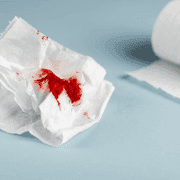Is Piles Surgery Painful?
In This Article
Is Piles Surgery Painful?
Elena
Updated on October 04, 2024
Medically verified by Dr. Arya
Fact checked by Dr. Fazeela

Proctology
6 min read
Piles, also known as hemorrhoids, are swollen veins in the rectum and anus that can cause discomfort, bleeding, and pain.
In some cases, when other treatments fail, surgery becomes necessary to remove or reduce piles.
If you’re considering or scheduled for piles surgery, you may be concerned about the pain and the recovery process.
In this blog, Mykare Health will explain what to expect during and after piles surgery, how painful the procedure might be, and what the recovery journey entails.
Understanding Piles Surgery
There are different types of surgical procedures available for treating piles, depending on the severity and the individual patient’s needs. These include
-
Hemorrhoidectomy – A traditional surgery where the hemorrhoids are cut out.
-
Stapled Hemorrhoidopexy – A procedure where a circular stapling device is used to remove a ring of tissue and pull hemorrhoids back into place.
-
Laser Surgery – A minimally invasive procedure using laser energy to shrink hemorrhoids.
-
Sclerotherapy – A treatment involving the injection of a solution to shrink the hemorrhoids.
-
Rubber Band Ligation – A method in which rubber bands are placed around the hemorrhoids to cut off their blood supply, causing them to shrink.
The choice of surgery depends on the severity of the condition and your doctor's recommendation. Each procedure comes with its own level of discomfort, recovery time, and potential for pain.
Is Piles Surgery Painful?
While piles surgery can cause discomfort, the degree of pain varies depending on the type of procedure and individual pain tolerance. Here’s a breakdown
-
Hemorrhoidectomy: This is generally the most painful of the surgical options because it involves cutting away tissue, which can be sensitive. The pain can last for a few days to a week after surgery but can be managed with pain relief medication.
-
Stapled Hemorrhoidopexy: This procedure typically results in less pain compared to hemorrhoidectomy. Since the procedure is performed higher up in the anal canal where there are fewer nerve endings, patients often report a shorter and less painful recovery.
-
Laser Surgery: Laser surgery is known to be less painful as it is minimally invasive, leading to less tissue damage and bleeding. The recovery time is also faster, with most patients experiencing mild discomfort for a short period.
-
Sclerotherapy and Rubber Band Ligation: These methods are often considered less painful than full surgery, though there can be mild discomfort or pain during and after the procedure.
In most cases, patients are prescribed pain relief medications to manage postoperative discomfort. These could include over-the-counter painkillers like ibuprofen or acetaminophen, or prescription medications if the pain is more severe.
 5 min read
5 min readDon't Ignore Bummy Pain: Could It Be Piles?
 7 min read
7 min readBlood In The Stool: A Sign You Shouldn’t Ignore
 6 min read
6 min readSitting All Day Wreaking Havoc? It Might Be Piles!
Get a Callback Now
What to Expect During Recovery
Recovery time after piles surgery depends on the type of procedure and your overall health. Here’s what to expect in terms of healing and care:
First Few Days Post-Surgery
-
For more invasive surgeries like hemorrhoidectomy, you may feel pain and discomfort in the anal area for the first few days, which can be managed with prescribed painkillers. There might also be some bleeding, especially during bowel movements.
-
With minimally invasive procedures like laser surgery or rubber band ligation, the pain tends to be much milder, and recovery starts sooner. You may be able to resume normal activities within a few days.
Bowel Movements
-
One of the most uncomfortable aspects of recovery can be the first bowel movement after surgery. Pain and bleeding are common, but this should subside within a few days.
-
To ease this, your doctor may recommend stool softeners and a high-fiber diet to reduce straining.
Hygiene and Care
-
Keeping the surgical site clean is crucial to prevent infection. Sitz baths (sitting in warm water for 10-15 minutes) are often recommended several times a day to soothe the area and promote healing.
-
Your doctor may also suggest using moist wipes instead of toilet paper to reduce irritation.
Return to Daily Activities
-
Most patients can resume light activities within a few days to a week, but strenuous activity and heavy lifting should be avoided for a few weeks.
-
Sitting for extended periods may be uncomfortable, so it's important to rest and take frequent breaks if your job involves sitting.
Follow-Up Appointments
- It’s essential to attend any follow-up appointments your doctor schedules to ensure your recovery is progressing smoothly. Your doctor may assess the surgical area, check for infection, and adjust your pain management if necessary.
Managing Pain During Recovery
Pain management is a critical part of the recovery process. Here are some methods to reduce discomfort after piles surgery
-
Medications: Your doctor will likely prescribe pain relievers or recommend over-the-counter options. Always follow the dosage instructions carefully.
-
Sitz Baths: Soaking the anal area in warm water for 10–15 minutes, several times a day, can ease pain and inflammation.
-
Ice Packs: Applying an ice pack to the area can help reduce swelling and numb pain.
-
Dietary Changes: Consuming a high-fiber diet and staying hydrated can help make bowel movements easier and less painful.
-
Rest: Giving your body time to heal is important. Avoiding strenuous activities will prevent putting unnecessary strain on the surgical area.
Potential Complications
Though most patients recover without any major issues, there are some potential complications that could arise, such as
-
Infection: Proper wound care and hygiene can prevent infection, but if you notice excessive redness, swelling, or pus, contact your doctor.
-
Bleeding: Mild bleeding is common during the first few days, but if it becomes severe or persists, you should seek medical attention.
-
Urinary Retention: Some patients may experience difficulty urinating after surgery. This typically resolves within a few days, but in rare cases, a catheter may be needed.
Piles surgery, like any surgical procedure, can involve some level of pain and discomfort, but with the right pain management strategies and a focus on recovery, the healing process can go smoothly.
Understanding what to expect can ease anxiety and help you take the necessary steps to recover as quickly and comfortably as possible.
Types of Piles Surgery: Common procedures include hemorrhoidectomy, stapled hemorrhoidopexy, and laser surgery.
Pain Levels: Hemorrhoidectomy is generally the most painful, while laser surgery is less invasive and less painful.
Recovery Time: Recovery time varies depending on the surgery but typically lasts from a few days to a few weeks.
Post-Surgery Pain Management: Pain can be managed with medications, sitz baths, and dietary changes.
First Bowel Movement: It’s often painful but improves over time with the help of stool softeners and fiber intake.
Hygiene: Proper cleaning of the surgical area is crucial to prevent infections.
Return to Normal Activities: Most patients can resume light activities within a few days, but heavy lifting should be avoided for several weeks.
Dietary Adjustments: A high-fiber diet and hydration are key to easing bowel movements during recovery.
Potential Complications: Be aware of signs of infection or excessive bleeding during recovery.
Follow-Up: Regular follow-up appointments with your doctor are important to monitor healing.



